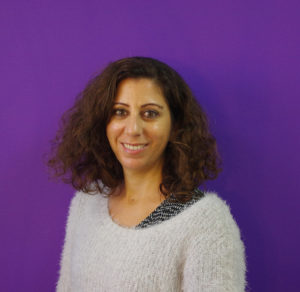

Guest blog by Georgia Papacleovoulou
Being diagnosed with cancer is a life-changing moment. Alongside the medical treatment and physical effects of the disease, patients need support on a psychological and emotional level. Time and again, the person with whom patients credit for providing this indispensable support is the cancer nurse.
‘It’s vital for patients to have their own specialist oncology nurse. Our son’s nurse was our systems navigator, our support-group leader, our shoulder to cry on, our guide and our friend. He walked with us on that terribly uncertain road into the future. He supported us when we stumbled on that road, and he frequently smoothed the way for us in accessing supportive services.’
Kathy Oliver, Chair and Co-Director, International Brain Tumour Alliance
Recognising this, the European Oncology Nursing Society has designated today – 18 May 2017 – as the first ever European Cancer Nursing Day. The event aims to highlight the invaluable work of cancer nurses and emphasise the importance of further education and training for nurses to specialise in cancer care.
Some evidence shows that cancer nurses can make significant contributions to improving cancer survivorship. To deliver better patient outcomes, we must focus on what matters most to patients – and we know that cancer nurses matter to patients. So how can we encourage greater recognition of oncology nursing across Europe?
Cancer nurses play a vital role
Patients have consistently pointed to the role of the cancer clinical nurse specialist (CNS) in improving their cancer experience. In a UK survey, cancer patients with a CNS responded more positively than those without a CNS on a range of questions about information, choice and care.
Evidence from Australia and Canada has shown that breast cancer nurses contribute to improvements in outcomes for women by providing information and support which promote continuity of care. Women found supportive care by their breast care nurse to be paramount in improving their quality of life. In one study, women interviewed repeatedly emphasised the importance of the role of the breast cancer nurse in providing support through communication, establishing rapport and an awareness of their needs.
As we found in the All.Can policy report, cancer nurse specialists provide crucial support to patients and their families and have a far-reaching impact. Along with ensuring continuity of care for the patient, they can help to prevent unnecessary hospitalisations and free-up time for oncology specialists. All of this helps to speed up care pathways, allowing for more patients to be seen.
Recognising the value of cancer nurses: The RECaN project
As well as expediting care pathways, access to a CNS has been shown to be vital in delivering high-quality, patient-centred care and treatment. Yet despite this, a number of countries still do not have formalised specialist oncology nurse roles, and recognition of cancer nursing across Europe is inconsistent. To address this issue, the European CanCer Organisation (ECCO) Board and the European Oncology Nursing Society (EONS) have developed the RECaN (Recognising European Cancer Nursing) project. The project, led by EONS President Daniel Kelly, aims to emphasise the important role of nursing in cancer care and improve recognition of the value of oncology nurses across Europe. It plans to achieve these aims through research, education, clinical leadership, nursing strategy, advocacy and policy development.
‘Recognising the value of excellent cancer nursing often only happens when someone finds themselves caught up in the uncertainty that a cancer diagnosis brings. The cancer nurse is an expert who delivers treatment, assesses side effects, and provides emotional help as well as practical support. It’s time that cancer nurses are recognised for being central to the provision of excellent cancer care. Without good nursing, the best hospitals in the world will struggle to succeed in reaching their quality and safety goals, and patients will miss out on the care and support they need. European Cancer Nursing Day is about saying it’s time to recognise the work that all cancer nurses do, and to reward this contribution with the right career structure, pay and educational opportunities. It’s time to value and recognise the contribution of cancer nursing. One day, we might need their expertise ourselves.’
Daniel Kelly, President, European Oncology Nursing Society
What next?
A key step in optimising cancer care is to look at whether the most appropriate healthcare provider skill mix is in place to meet the needs of cancer patients over the course of their care. Cancer nurses are a crucial part of the multidisciplinary team needed to deliver optimal care to cancer patients. The benefits to patients, in terms of improved outcomes, continuity of care and quality of life, are evident and widely accepted – as are the economic gains. What is needed is investment and recognition – governments need to reach deeper into their pockets to ensure that cancer nurses receive their dues, by supporting their career development, securing better pay and recognising their vital contribution to cancer care.
There are several ways you can help to champion oncology nurses and the vital work they do:
- Support the annual European Cancer Nursing Day – follow #ECND2017 on social media
- Share results of the RECaN project
- Contact All.Can to share your experiences and examples of best practice in oncology nursing
- Read our interview with Georgia Papacleovoulou on the fast-track pathway in pancreatic cancer treatment
At All.Can, we focus on improving efficiency in cancer care and securing better outcomes for patients. We recognise that achieving sustainable, high-quality, patient-focused care throughout the cancer pathway is not possible without the crucial contribution of cancer nurses. For further examples of how greater efficiency can be achieved in cancer care, please see our policy report.